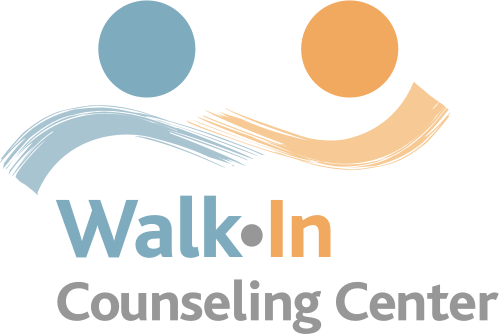As a teenager in rural Minnesota, Anyssa A. found a therapist to help her deal with the mental health challenges she faced then. She remembers thinking, “Wow, this is a job? This is so cool!”
Today, she is on track to becoming a therapist herself. Being a volunteer receptionist at Walk-In is an important role along the way. “I learn from every single clinic,” she says.
Anyssa first volunteered as a receptionist in 2018, when she was an undergraduate student in psychology at Augsburg University. The role is key in the smooth running of Walk-In’s free, no-appointment clinics.
“I was looking for an internship, and I saw a flier about Walk-In,” she recalls. “I had never seen or heard of anything like this – free, volunteer-based. It was this hidden gem.”
Walk-In turned out to be a good place to deepen her learning about psychology, which she had begun to study in high school.
She loved being a receptionist so much that she stayed in 2019 as well. Then she moved on and began a full-time job. When she got laid off during the pandemic, she called Director of Volunteers Pang Chang and asked, “Are you still open?”
Glad to hear that Walk-In had not closed, she learned how to run clinics on Zoom and has been running evening clinics every other week since then.
“I’m the first person they see when they come to the clinic,” Anyssa says. “And I love the clients that come in. The fact is, it’s a huge step just to walk in or call in. The fact they are there and present — it’s the whole world. I always want to make sure they are helped.”
One of her favorite things about Walk-In clinics is the team consultation period after the clinic ends. At that time, the counselors, the receptionist and the team consultant discuss the clients they have served, without identifying information. The team members each bring different perspectives to the clients’ issues, and the counselor may follow up with the client to provide additional resources to them.
Each team member also brings a different personal and professional background. “I am autistic and I am married, in a same-sex relationship,” she says. “I can relate to the experiences of clients who have those things in common with me, and I can share my insights with the counselors too.”
She also loves the fact that the volunteers are “taking time out of their lives to volunteer. I started to appreciate how much of a privilege it is to volunteer.” Now that she is a graduate student studying social work, she is well on her way to becoming a therapist.
For one graduate school project in policy and the community, she was assigned to interview a community leader. She interviewed Walk-In’s executive director, Mary Weeks. “The biggest thing I took away was the importance of being a team player, and knowing that each staff person is an expert in their role – and to not assume that she knows everything.”
From observing the counselors at Walk-In, Anyssa has identified two characteristics that she believes are key to their effectiveness: Open-mindedness and empathy. “We hear so many stories from clients. I reflect on those stories after every clinic and take notes on what I’ve learned.”
“I knew Walk-In was the best place to start my journey” toward being a therapist, Anyssa says. “And it still is.”
Read the rest of the July 2023 newsletter here.
Read more volunteer profiles and other news from past newsletters.

